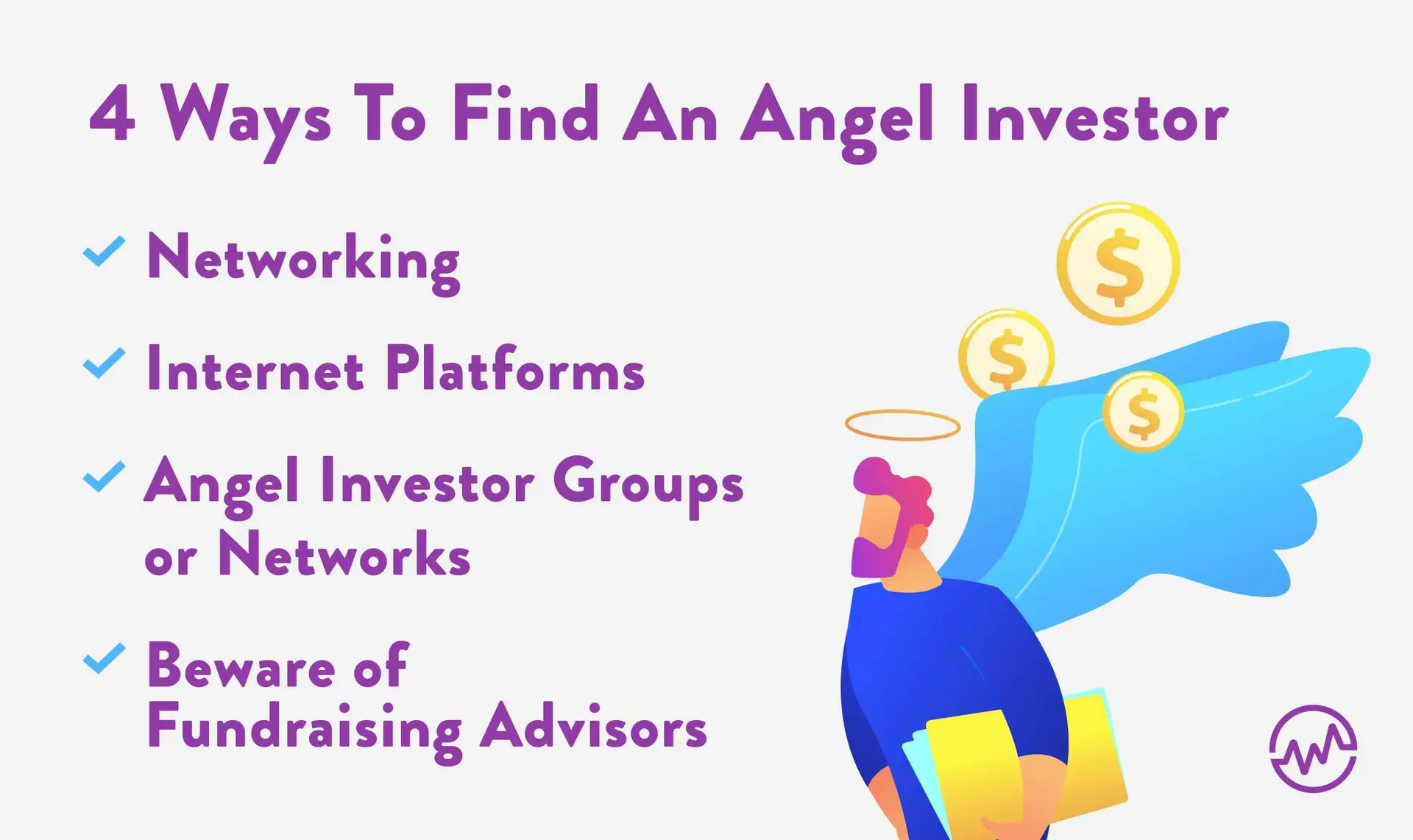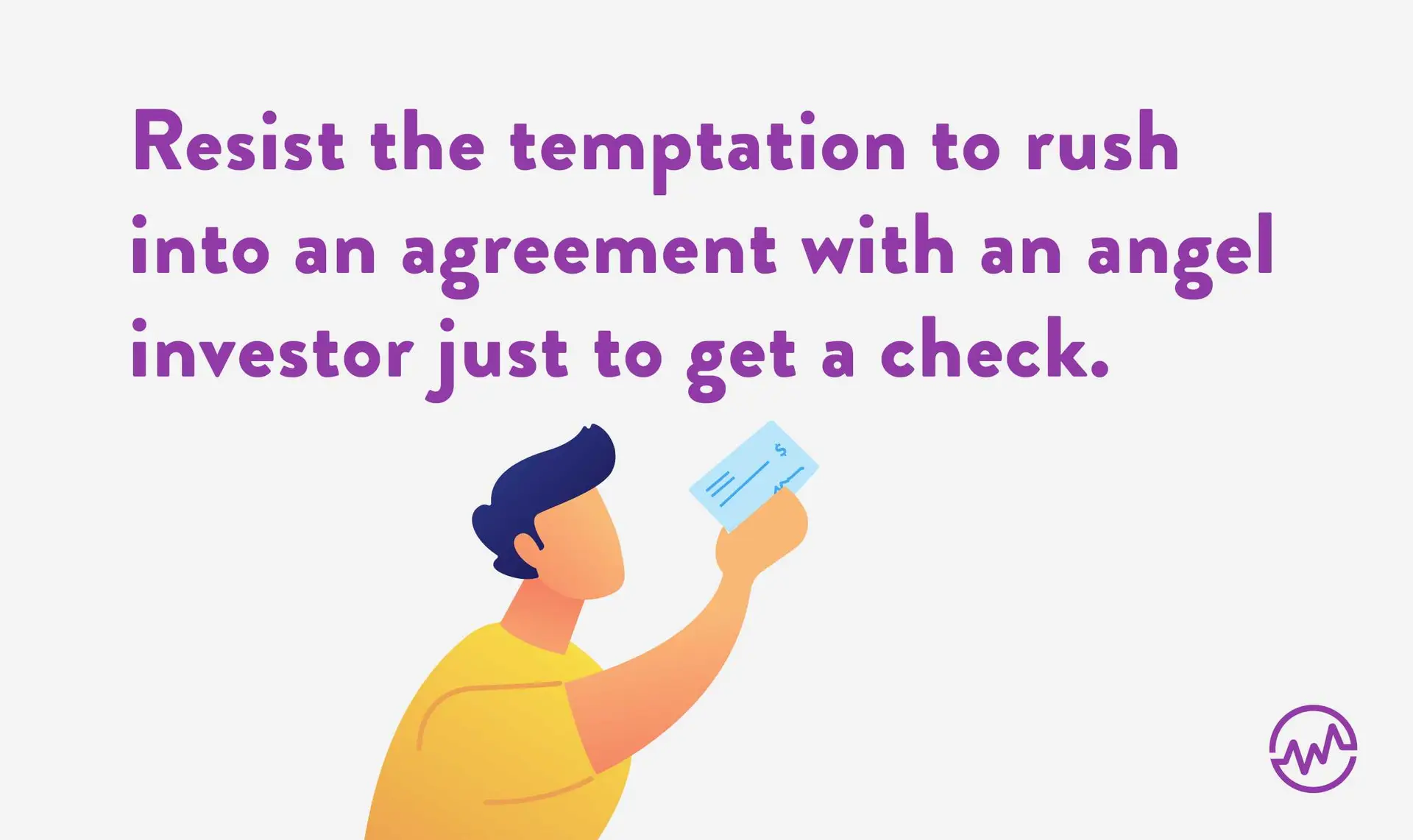Jerilyn Laskie
WealthFit Contributor
Jerilyn Laskie is a corporate attorney and freelance writer focusing on business and legal topics.

Learn directly from the world’s top investors & entrepreneurs.
GET STARTED NOW
Your startup needs funding. You’ve evaluated all your options, and you’ve decided that angel investment is a right choice for your business . . . Now what? If you’re wondering how to find angel investors, that isn’t really the hard part. The hard part is finding the right ones.
Angel investors seem to be a part of every sexy startup story. And for good reason: the right angel investor can give your business a much-needed push towards success. right angel investor can give your business a much-needed push towards success.
But there are also dangers in choosing the wrong one.
An angel investor who isn’t a good fit will waste time and hurt your business.
Here’s the reality: the process of finding the right investors is often longer and more difficult than you might expect. It takes time to vet and build relationships with angels.
So, even if you’re not quite ready to attract funding, it’s never too early to start making connections.
If you’re ready to jump in, here’s how to find angel investors — and how to choose one that’s right for your business.
Before discussing how to find angel investors, it’s worth clarifying: what exactly is an angel investor?
An “angel investor” is a high net-worth individual (or a group of such individuals) who invests his or her own money into an early-stage company, usually in exchange for equity ownership.
Angel investors are typically successful entrepreneurs or business people themselves. They usually only invest part-time and review a small number of deals. Whatever they invest comes out of their own pockets.
Angel investors are also usually “accredited investors” as defined by the U.S. Securities and Exchange Commission. But they don’t have to be. An individual is an “accredited investor” if he or she has:
If you’re trying to figure out how to find angel investors, it’s probably because your business needs the cash.
But the value of angel investors doesn’t just lie in how much money they can offer.
A quality angel investor should also be able to provide:

If you’re a new entrepreneur, finding angel investors can seem like a daunting task.
If you’re clueless about how to find angel investors, below are a few ways you can start the search. Using a combination of these methods will increase your chances of finding a good match.
As you go through the process, always remember that angels are investing their own money. Also, known angel investors are constantly bombarded with requests and pitches.
This means building a relationship and establishing trust is crucial. So if you want a fighting chance of getting a meeting, always try to get a warm introduction. This is true regardless of how you find an angel.
If you’re just starting to dig into how to find angel investors, your own network is an excellent place to start.
Many new entrepreneurs turn to family and friends first. But be careful with this one. You should still make sure that the arrangement won’t cause more harm than good. Cash shouldn’t be the only thing they can bring to the table.
Even if you don’t have any family or friends who can invest, you should still tell them that you’re looking for an angel investor. In fact, tell everyone in your network. Ensure you have a tight elevator pitch. Even if you don’t think someone is going to invest, you never know who they know.
And, of course, always work on expanding your network. You can do this by attending industry events or other meetups in your area. Angel events, in particular, can be great opportunities to connect with angel investors who are actively looking for new opportunities.
You can also reach out to other entrepreneurs. They may be able to share their own tips on how to find angel investors or information about the early investors in their companies.
If a company is similar to yours, its early investors may be good candidates. These investors will already understand your market and be more likely to appreciate your product or service.
Lastly, keep in mind that angels often work together. So once you’ve been in touch with one angel, they may be able to introduce you to others.
If you’ve been looking into how to find angel investors, you’ve likely come across online platforms that connect angel investors with startups.
Examples include
There’s no shortage of these types of platforms. Of course, because these platforms are easy to find, the competition can be high.
Each platform also has its own rules and requirements, so you should review them carefully before using them.
As you start looking for angels, you’ll notice that they often work together. They pass deals to each other, they collaborate on research, and they pool money together to increase their equity (and power) in a company.
Try to identify angel investor groups or networks in your area. These groups have varying levels of formality. Some even have websites and official application processes.
If you can’t find identify any local groups, ask the first angel you meet if they know of any.
If you decide to approach an angel investor group, remember that they get a lot of pitches. Getting lost in the pile is very easy. So even if a group has an official application process, you should still try to get a warm introduction.
If you’re struggling with fundraising, hiring a fundraising advisor might seem like a good idea.
They’re professionals who know the process.
They’ll pound the pavement for you so you can focus more on your business.
They have connections.
Sounds good, right?
Sure, sometimes fundraising advisors can help. But in most cases, you’re better off tapping your network or a consultant for fundraising advice.
As a founder, it’s part of your job to fundraise and build relationships with investors. The sooner you start honing these skills, the better. Using an intermediary can actually interfere with this process.
Fundraising advisors will also take a fee or even equity, meaning money that could have gone into your company is now off the table.
So now you know how to find angel investors.
But it’s not a matter of reaching out to as many angel investors as possible.
You should only target investors who you think may be right for your business.
The vetting process for an angel investor is long. Do your research before you reach out to any angel investor. Continue evaluating all investors after you meet them.
This includes learning about their:
Remember: an angel investor should be able to offer more than just cash.
The right investor should have the right experience, helpful contacts, and relationships with other investors.

Resist the temptation to rush into an agreement with an angel investor just to get a check. Angel investors usually only exit when your business is acquired or goes public. This can be at least several years. Until then, you and your angel investor will be chained together.
Not sure what you should be looking for in an angel investor?
Below are some questions you should ask before sealing the deal.
An angel investor’s guidance can have an even greater impact on your business than their cash. They’ll also provide the most meaningful advice if they have experience in your industry.
Hopefully, the angel investor can help fill “holes” in your team’s skills or expertise, too.
Think about whether the angel investor can bring skills to the table that your team lacks — whether that’s operations, financial management, manufacturing, or other areas.
Their contacts and reputation are also important. If they’re well-connected, they can help build business relationships, find executives, or attract other investors.
It’s best to choose an angel investor that has experience building, running, or helping other startups.
Startups are full of ups and downs. It’s a cutthroat environment and it often takes several years for a startup to stabilize.
Your angel investor should know this — and ideally, have experienced failure, too.
This kind of investor is much less likely to panic when you inevitably go off course.
You should also look at startups the investor has funded and how those companies fared. Try to arrange meetings with the founders of those companies.
Ask the following:
Angel investors participate in their portfolio companies to varying degrees. Learn as soon as you can how involved they want to be.
The most valuable angels should be able to provide at least some input and guidance. If they’re too busy to provide any kind of support, you may be better off passing.
But if they have too much time on their hands, they can easily turn into nightmares by micromanaging and acting like they own the company.
At a minimum, you should expect to provide regular updates and financial reports.
Before funding, the investor’s expectations around communication and reporting should be crystal clear.
You should know how they expect you to update them — and how often.
To attract the right angel investor, you should be upfront about the risks related to your company.
Any investor should have realistic expectations about your company’s potential profitability and how long it will take you to reach milestones.
They should also show:
If their expectations are too high, you may end up taking unnecessary risks to appease them and damage your business in the process.

Look at any angel investor as a potential long-term partner in building your business. You should want to work with them, and you should value their guidance.
Also, consider whether your personalities are compatible. A good angel investor should be able to give constructive feedback, without being difficult. They should be calm and able to meet challenges without panicking.
After all, running a startup is stressful enough — a difficult angel investor will only make it worse.
It goes without saying that angel investors should like and believe in your business idea.
But they should be more excited about your team than your business idea.
Startups often have to pivot or kill certain ideas that aren’t working for any number of reasons. If your angel investor is too attached to an idea, they can make life very difficult. They may argue with you or withhold support.
But if your angel investor believes that your team is capable of success, you’ll be much better off. This attitude will better allow them to embrace change.
When a much-needed check hangs in the balance, it can be easy to overlook red flags. But you’ll save yourself a lot of pain in the long run if you stay alert.
Before bringing an angel investor into the fold, here are a few things to look out for:
Ethical angel investors won’t ask to be a co-founder in exchange for funding.
They won’t ask for a non-dilution clause (giving them the right to always have a certain percentage in your company).
And they won’t ask for favorable treatment in exchange for introducing other investors.
If you question their ethics before they fund, it’s only going to get worse once they have a hand in your business.
If an angel investor only asks superficial questions — or none at all — there’s a good chance you’re dealing with “dumb money.”
It bears repeating: the value of an angel is not just in the cash they provide, but also their mentorship.
An angel can’t provide appropriate guidance if they don’t understand business.
And if they understand the business, they’ll definitely have questions.
Your professional advisors are key to protecting your interests. Experienced investors expect them to be part of the discussion, too.
If an investor tries to work around them, there’s a reason why — and it’s probably not good.
Due diligence is a normal part of the process. You are, after all, offering up a slice of your company.
They’ll be digging into your background, too. If you ask an angel investor for references (and you should), they should be able to provide them.
The above is a non-exhaustive list. Above all, trust your instincts.
Now that you know how to find angel investors and how to evaluate them, it’s time to get to work.
The more angel investors you research thoroughly, the better. Always keep in mind that your angel investors can significantly impact your startup’s trajectory — sometimes for the worse. And finding the right angel investor can be a long process.
So be selective, and be patient.